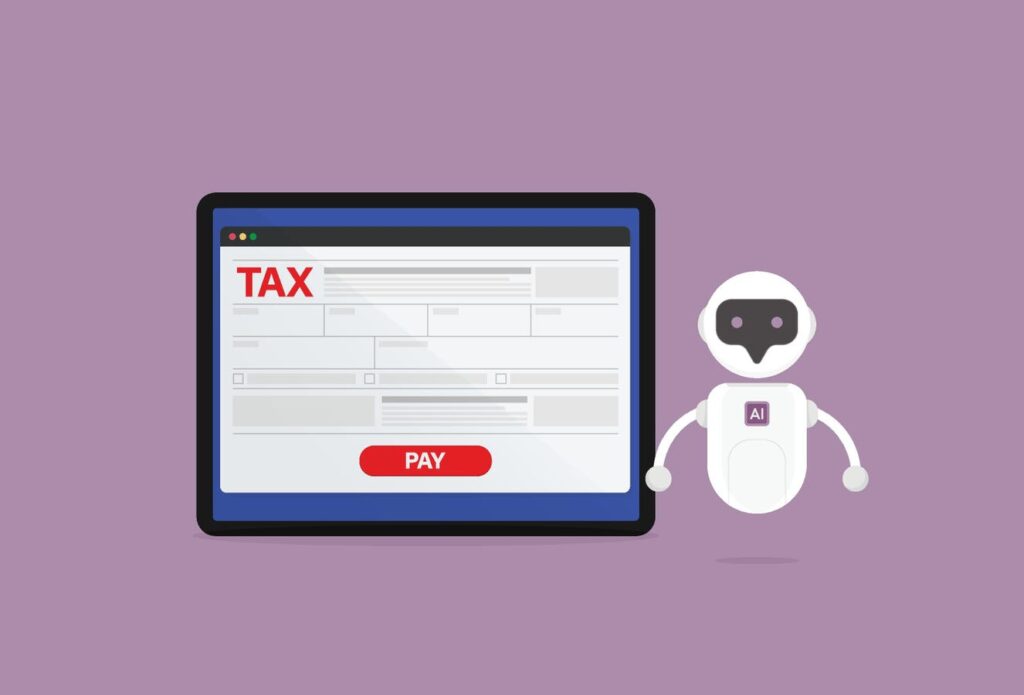Robin Singh is the Founder and CEO of Koinly (a bitcoin and cryptocurrency tax software) that helps Bitcoin investors calculate their taxes.
Tax season has always been a stressful time, but AI is making it even more interesting—especially for tax authorities. Around the world, governments are increasingly deploying AI-driven audits, automated compliance tracking and predictive analytics to close the tax gap and maximize collections. For taxpayers, this means fewer loopholes, faster audits and a higher chance of getting flagged for errors or omissions.
AI Is Reshaping U.S. Tax Enforcement
Gone are the days of manual audits that take months or years to complete. AI-powered systems can now analyze tax returns and third-party data in real time, identifying discrepancies with pinpoint accuracy. This technology is already helping governments recover unpaid taxes and streamline enforcement efforts.
The U.S. Internal Revenue Service (IRS) is at the forefront of this movement. The agency has significantly expanded its use of AI to detect fraud, automate audits and improve collections. AI-powered models are being used to identify high-risk taxpayers and streamline enforcement, allowing auditors to focus on cases with the highest likelihood of noncompliance.
AI is also revolutionizing document processing at the IRS. The agency receives an astounding 76 million paper tax returns and forms annually, along with 125 million additional pieces of correspondence. In response, the IRS has initiated an ambitious paperless processing initiative aimed at digitizing all tax documentation. To support this effort, the agency is said to have purchased high-speed scanners in 2023 and has launched multiple related initiatives, including the Scanning-as-a-Service (SCaaS) project, the Lockbox initiative and the Submission Processing Modernization (SPM) program.
Digitizing documents is the obvious AI play, but the IRS takes it much further with its contracts with data analytics firm Palantir Technologies. One of the agency’s most significant investments in this area is the Lead and Case Analytics (LCA) tool, developed in partnership with Palantir. This AI-driven software helps the IRS and other agencies analyze massive datasets, such as tax filings and bank transactions, within a unified environment. The goal? To identify fraud and underreporting. Fast.
A Global Trend
AI is quietly revolutionizing tax enforcement across Europe, with Austria, Poland and Italy leading the charge. Austria’s Predictive Analytics Competence Centre (PACC) is proving that big data is the ultimate tax watchdog. It analyzed 6.5 million cases in 2023, uncovering 375,000 suspicious instances and adding 185 million euros to state coffers. Poland, meanwhile, has slashed its VAT gap thanks to STIR, an AI-driven system that tracks taxpayer transactions. Italy is taking a more forensic approach with its VeRa algorithm, cross-referencing tax returns with bank data to flag high-risk cases, a strategy that exposed over a million fraud attempts in 2022, saving the government 6.8 million euros. In France, authorities have used AI to scan aerial photos for undeclared pools, cross-checking tax records to uncover hidden assets.
AI-driven tax enforcement doesn’t stop at national borders. The EU is prioritizing cross-border data sharing, enabling tax authorities across the Union to collaborate more effectively. Through the Directive on Administrative Cooperation (DAC), countries use automatic exchange of information and information-on-request mechanisms so foreign income is properly taxed, closing loopholes for fraud.
Australia’s tax authority, the Australian Taxation Office (ATO), is also leveraging AI to detect underreported income. In May 2024, the ATO shared details of 43 AI models in production, with many of the models capable of generating “nudge messages,” encouraging taxpayers to review their figures before submitting them to the tax office.
Digital Assets Are No Longer Off The Radar
For years, digital assets operated in a regulatory gray area. Many investors believed that decentralized finance and self-custody wallets provided anonymity. However, AI-powered forensic tools are proving otherwise. These systems use blockchain clustering techniques to link seemingly unrelated wallets, flagging undeclared income with remarkable accuracy.
Governments are now treating digital asset transactions with the same scrutiny as traditional investments. The IRS has launched targeted audits on high-net-worth individuals suspected of underreporting digital asset gains, while the U.K. and Australia have sent thousands of nudge letters in recent years warning taxpayers to correct their reporting before facing full audits. In short, if you’re trading or holding digital assets, assume tax authorities are watching.
Best Practices For Staying Ahead
With AI-driven enforcement ramping up, the best way to avoid tax trouble is to be proactive. Here are a few key steps to stay compliant:
1. Keep Meticulous Records: AI can track income across multiple accounts, so make sure you do, too. Maintain detailed records of your income, expenses and capital gains—whether from stocks, bonds, property or other investments.
2. Understand Taxable Events: Selling stocks, renting out property, earning dividends and even gifting assets can trigger tax obligations. Make sure you know when a taxable event occurs to avoid unexpected liabilities.
3. Report Investment Gains Accurately: Whether you’re dealing with stocks, bonds, real estate or digital assets, report your gains properly. Underreporting investment income can lead to audits and penalties.
4. Stay Informed About Regulatory Changes: Tax laws are constantly evolving. Keeping up with regulatory updates can help you maintain compliance.
5. Seek Professional Advice Before Making Moves: Before selling assets, making large withdrawals or transferring property, consult a tax professional. Understanding the tax implications of a sale or disposal can help you strategize and minimize liabilities.
The information provided here is not investment, tax or financial advice. You should consult with a licensed professional for advice concerning your specific situation.
Forbes Finance Council is an invitation-only organization for executives in successful accounting, financial planning and wealth management firms. Do I qualify?
Read the full article here
